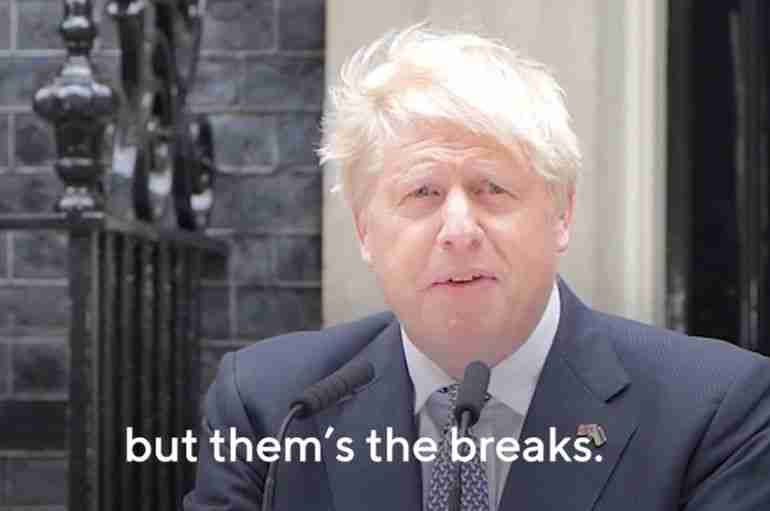Boris Johnson Is Finally Resigning As UK Prime Minister After 50 Ministers Quit To Protest His Leadership
The UK’s prime minister, Boris Johnson, has announced he will step down from his role after several party members led a series of resignations in protest of his leadership.

The UK’s prime minister, Boris Johnson, has announced he will step down from his role after several party members led a series of resignations in protest of his leadership.
More than 50 members of Johnson’s government, including top members such as his new chief finance minister, Rishi Sunak, and health secretary, Sajid Javid, had started to quit since Tuesday July 5, urging for a new leader.
“It is clearly now the will of the parliamentary Conservative Party that there should be a new leader of that party and therefore a new prime minister,” he said during his speech in front of Downing Street on Thursday.
Most notably known for successfully leading Britain out of the European Union, Johnson won the general elections and was appointed prime minister in 2019 under the slogan of “Get Brexit Done.”
According to critics, the Conservative party member has since been engulfed in scandals of providing political favors and accused of mismanagement.
He had also appointed people to high governmental positions despite allegations of inappropriate behavior against them.
Recently, a report into the British prime minister’s lockdown-breaking parties was published, revealing a drunken and rowdy party culture in Johnson’s Downing Street while the rest of the UK was under a strict lockdown.
Johnson refused to quit even as late as Wednesday evening stating “the last thing this country needs, frankly, is an election.”
He also felt an obligation to continue to fulfill the promises he set forth during his campaign in 2019, he said.
On Thursday July 7, Johnson finally announced he was resigning but would stay until his new successor is found and await the schedule of his departure from Parliament next Monday.
Both the Conservative Party and Parliament must now vote for a new leader, which may take at least two months or more.
General elections for a new prime minister would probably not take place until January 2025, unless the new prime minister elected by MPs calls for one, according to BBC.
Currently, Johnson no longer has the ability to enact new policies, but will continue to officially represent the UK and appoint prime ministers until he is officially removed from office.





